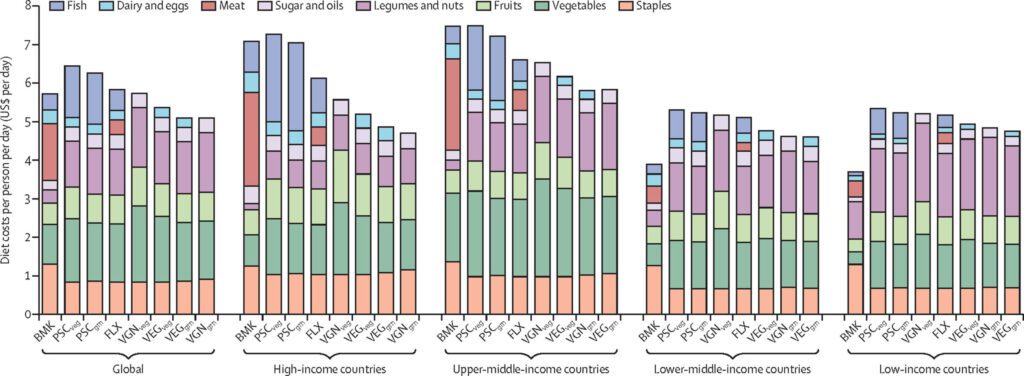Going vegan makes a difference. Research shows how individual choices reduce animal harm globally. At the same time, it can be a healthy choice that can support healthy living at every age and life stage.
With a critical eye, we encourage you to find out more. As a starting point, we’ve gathered a few reliable studies to demonstrate these claims.
Sustainability and Land Use – Our World in Data
This 2024 article be Hannah Ritchie and Max Roser has a couple of charts that show just how wasteful animal agriculture is. Hopefully, you can see that a plant-based vegan diet is significantly more energy-efficient than a meat-based one. Around 80% of global agricultural land is used for livestock farming—including grazing and growing animal feed. This wasteful use of land could be used more efficiently to grow crops for people, or rewilded to support biodiversity.
“Try to live simply. A simple lifestyle freely chosen is a source of strength.” A&Q 41
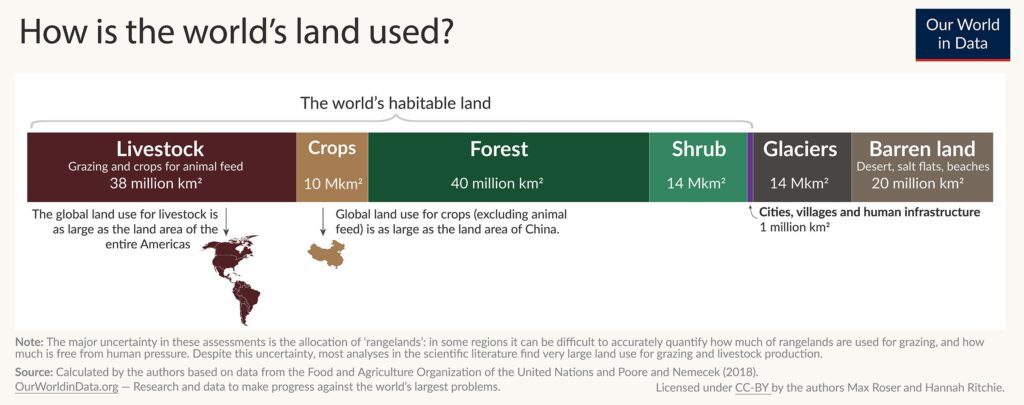
If you look at the disparity between land used and calories produced, it becomes clear that the wastefulness of animal agriculture has a massive impact. However, this macro level problem is made up of individual dishes affecting individual animal lives affected by individual choices.
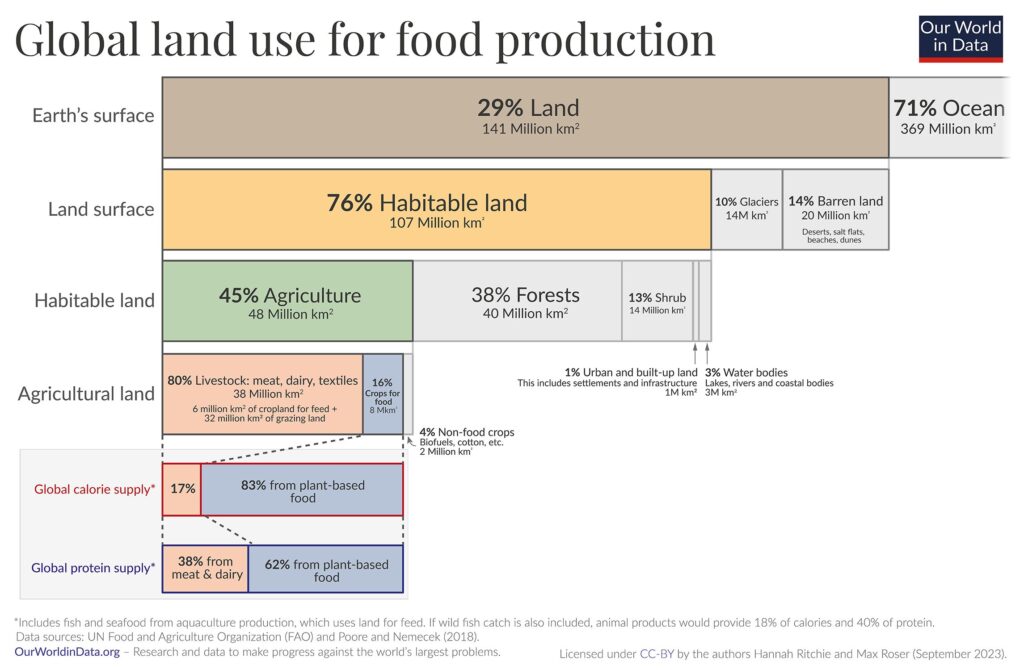
Sustainability and Emissions – Oxford Study (Nature Food)
This 2003 study published in the scientific journal Nature Food analyses the relative impact different lifestyles have on the environment. It clearly shows that a vegan lifestyle has a substantially lower negative impact on the environment across every metric. It also shows that adopting a vegan diet is the single most impactful personal action we can take to reduce our environmental footprint. Caring for our Earth through a plant-based vegan diet conserves resources, and enables us to live in balance so that future generations may also thrive.
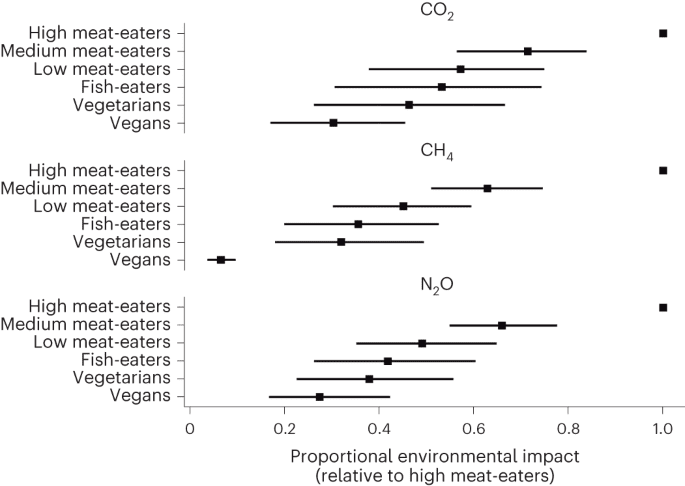
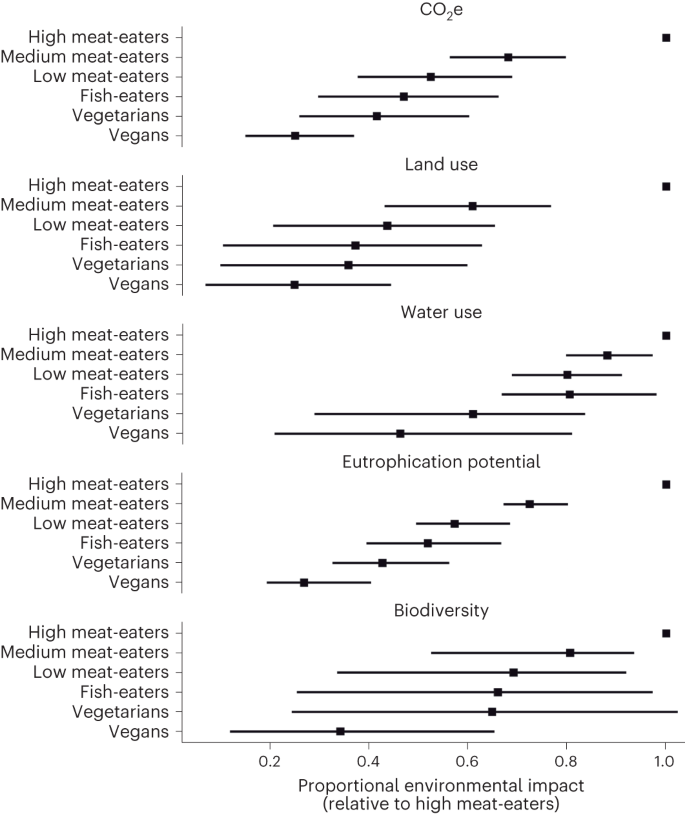
Health – British Dietetic Association
Here are some key quotations from the BDA factsheet:
“Plant-based diets can support healthy living at every age and life stage…Diets centred on a wide variety of plant foods offer affordable, tasty and nutritious options. Plant-based diets rich in beans, nuts, seeds, fruit and vegetables, wholegrains (such as oats, barley and quinoa) and minimally processed foods can provide all the nutrients needed for good health.”
“The exception is vitamin B12. This nutrient is not available from plants. You will need to get this from fortified foods or a supplement.”
“Plant-based eating is recognised as an intervention to improve health outcomes. They could reduce your risk of type 2 diabetes, hypertension, cardiovascular disease and some cancers and may help you manage your weight.”
Affordability – Study Publish in the Lancet
A study has shown that in countries like America, the UK, Australia and across Western Europe choosing to go vegan, vegetarian, or flexitarian could slash your food bill by up to one-third! The study, which was published in The Lancet Planetary Health in 2021, compared the cost of seven sustainable diets to the current typical diet in 150 countries, using food prices from the World Bank’s International Comparison Program. It found that in high-income countries:
- Vegan diets were the most affordable and reduced food costs by up to one third (21-34% reductions, depending on the composition).
- Vegetarian diets were a close second with similar reductions (27-31%).
- Flexitarian diets with low amounts of meat and dairy reduced costs by 14%.
- In contrast, pescatarian diets increased costs by up to 2%.
Each of these more plant-based diets is recognised as much better for heart health, cancer risk and other diet-related health impacts as well as having significantly lower carbon footprints than typical western diets.
(text taken from https://www.oxfordmartin.ox.ac.uk/news/sustainable-eating-is-cheaper)
